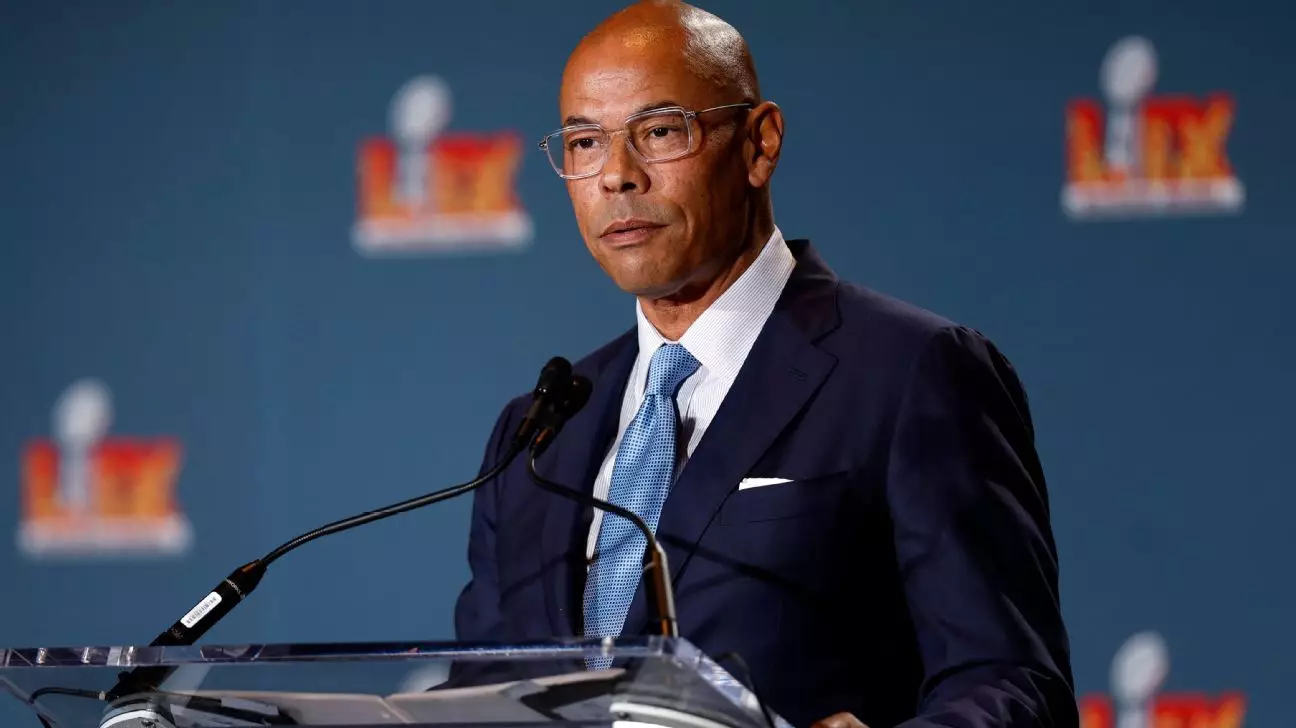In the high-stakes world of professional sports, governance and leadership are often painted as pillars of integrity and trust. But beneath that glossy veneer lies a troubling pattern of misconduct, conflicts of interest, and opaque decision-making processes that threaten the very foundation of union representation. The recent resignation of Lloyd Howell Jr. from the NFL Players Association executive director role exemplifies this disturbing reality. It reveals how the intertwining of private interests and union leadership can erode the faith players and fans alike place in these institutions. Far too often, union leaders prioritize personal financial gain over the collective welfare of players, exposing vulnerabilities in oversight that bitterly undermine the supposed independence of these organizations.
An Alleged Conflict of Interest That Should Never Be Ignored
Howell’s simultaneous role as a part-time consultant with The Carlyle Group—a powerful private equity powerhouse—and his leadership position within the NFLPA is an act that should have raised alarm bells from the outset. The potential conflict of interest was undeniable: private equity firms, like Carlyle, are actively seeking minority ownership stakes in NFL franchises, including deals that could benefit from the very relationships Howell was stewarding as union leader. Despite warnings from union legal counsel, Howell refused to step away from Carlyle, risking not only his credibility but also the integrity of the union. If union leaders cannot separate their personal financial pursuits from their duties protecting player interests, then the entire governance structure becomes compromised, fostering an environment where greed and favoritism can flourish unchecked.
The Power of Secrecy and Lack of Transparency
When unions fail to operate transparently, they sow distrust among their constituents. The NFLPA’s concealment of crucial information—such as the arbitration ruling that revealed league officials’ attempts to reduce guaranteed player compensation—underscores a systemic failure to grapple with accountability. Moreover, Howell’s secretive confidentiality agreement with the league and the ongoing FBI investigation into financial dealings tied to giant licensing firms cast a long shadow over the union’s leadership. These issues hint at deeper systemic problems, with leadership seemingly more focused on shielding itself from scrutiny than actively advocating for players’ rights. It is this culture of opacity that diminishes confidence and fosters a climate ripe for misconduct.
Consequences of Weak Governance and Ethical Lapses
The fallout from these revelations extends beyond individual scandals; it strikes at the core of how professional sports unions are perceived. When leadership is embroiled in insider deals, conflicts of interest, or allegations of discrimination and retaliation—like Howell’s previous lawsuit—trust collapses. Such incidents suggest a disregard for ethical standards and a failure to implement robust oversight mechanisms. This erosion of trust impacts not just the union’s reputation but also jeopardizes its ability to negotiate fair contracts, secure benefits, and uphold players’ rights in a meaningful way. The consequences are particularly damaging given that union leaders are entrusted with representing some of the most vulnerable and underpaid individuals in professional sports.
Reclaiming Integrity in Professional Sports Unions
What’s needed is a fundamental shift toward transparent, accountable governance that prioritizes the collective good of players over individual interests or private profit. Union leadership must embrace rigorous conflict-of-interest policies, regular public disclosures, and independent oversight to rebuild trust. Players and fans deserve an organization that stands firmly against corruption, listens openly to grievances, and coordinates efforts to improve standards across the board. Until such reforms become standard practice, the shadow of scandal will continue to hang over professional sports unions, fueling public skepticism and undermining the moral authority of their advocacy. It is high time the industry acknowledges that true leadership is rooted in ethical integrity, not hidden agendas.

